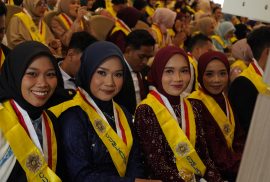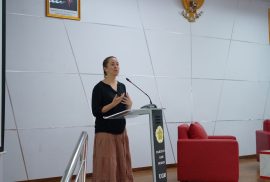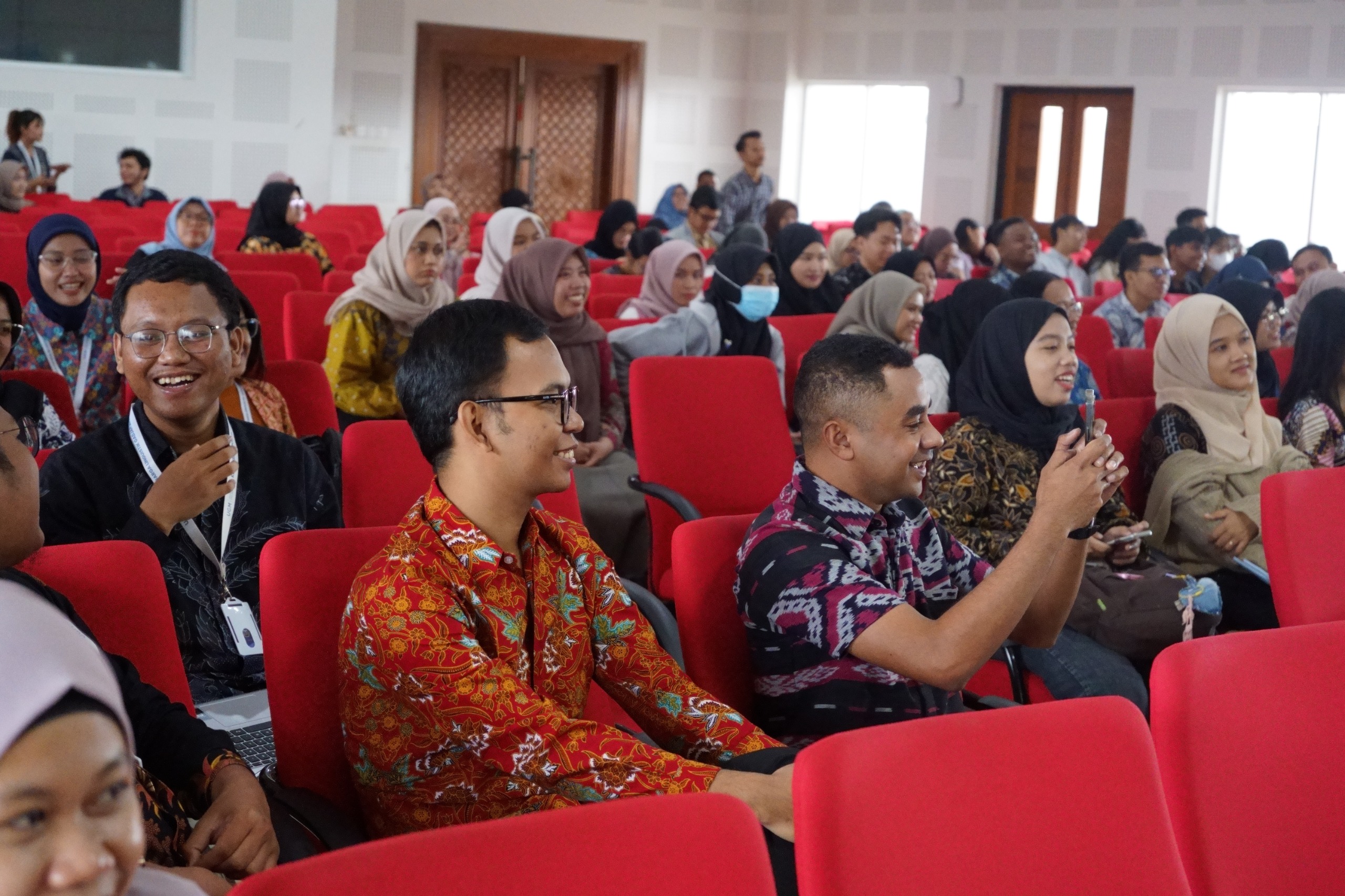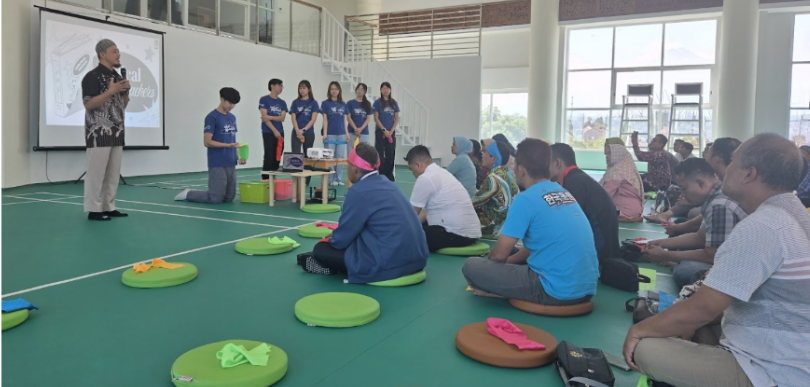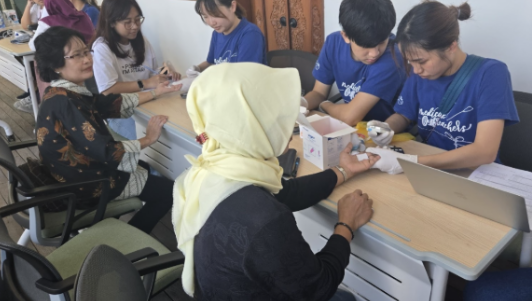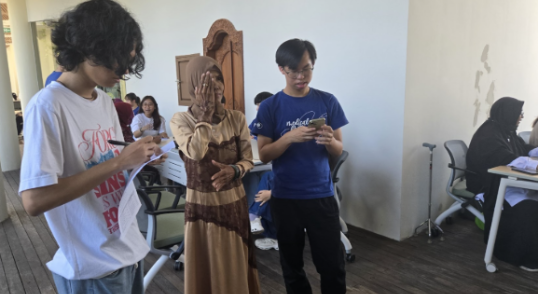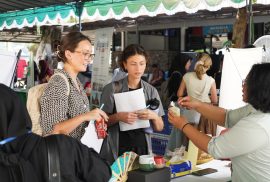Yogyakarta, 17/5/2025 – A student of the Javanese Language, Literature, and Culture study program, class of 2023, Maysa Putri Fatihah, won the 1st runner-up prize in the Javanese Script Literacy competition. This competition was held by Pura Pakualaman in the framework of the 219th (in Javanese year) Hadeging Kadipaten Pakualaman Ngayogyakarta. This year, the Hadeging Kadipaten Pakualaman event carries the theme ‘Manggala Gati Wiwaraning Rat’.
This Javanese Script Literacy Competition is divided into two categories, namely General and Students. For the general category, the competition is to translate Latin text into Javanese script and draw rerenggan/illustrations according to the participants’ interpretation of the contents of the text. The questions are in the form of macapat songs from the Sestra Ageng Adidarma manuscript text collected by the Widyapustaka Pakualaman Library. This text contains 6 verses of the Durma song, all of which must be depicted in the renggan, but only the first verse is translated. The text was given when the registration was announced, so participants could prepare illustration ideas well in advance.
On the day of the event, participants were given 5 hours to complete the work. During the process, participants were prohibited from opening their cellphones, copying letters, or plagiarizing images. The committee only provided drawing paper with Pakualaman stickers to minimize cheating.
Maysa’s work itself has a deep meaning. She mentioned in the description of her rerenggan that the color red symbolizes courage, while blue symbolizes peace and noble character. In the ornament under the renggan, a circle is depicted which has the meaning of rat or universe. In addition, there are ornaments of cannons, arrows, and spears as weapons of war. These weapons of war symbolize a source of strength or support to achieve victory.
Apart from Maysa, there were 2 other students from the 2023 batch who took part in this competition, namely Rafi Nur Fauzy and Rafif Wicaksono. Both are among the top 10 nominees with the best works. By participating in this competition, it is hoped that students can love and appreciate the literary works left by our ancestors more.
“It certainly feels happy to have the opportunity to participate in the Javanese script literacy competition and win. It’s great to meet great people there (especially philologists). Alhamdulillah, I was able to bring home the trophy from Pakualaman and make my parents proud. Hopefully, my other friends will be motivated so that in the next opportunity they can participate and compete together,” said Maysa.
Authors: Haryo Untoro




